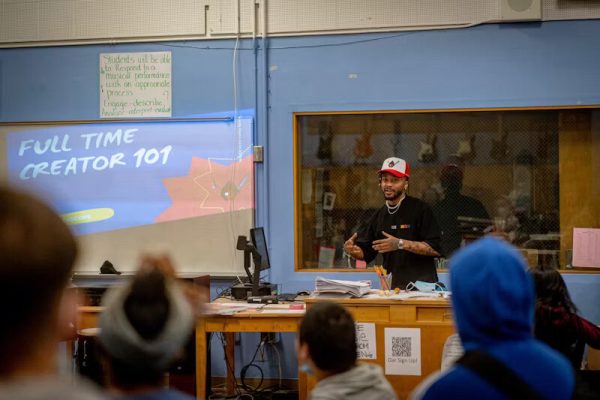We deserve some bang for our buck
Online classes should be offered at a discounted price at the University of New Haven, considering they already offer online programs such as accounting and homeland security for less than conventional classes.
I guess those programs are the lucky exceptions.
The sticker price to attend the university is $44,100 per school year – and that’s just for the classes. Once you add tuition and fees, room and board and books, you’ve shoveled out $68,918.
The saving grace for this price is that you can have the normal college experience – going to classes and getting to spend time with your friends, in and out of the classroom, right?
If only that were the case.
During my time at the university, I have taken eight online courses, but I have paid the same price as in-person courses, and I’m not sure if the classes were worth it.
During those online courses, I was in a constant state of fear and confusion – fear of never being able to contact my professors in time before an assignment was due, and confusion over the material.
I never felt like I was getting the quality education for which I was paying.
Students and their families don’t pay so they can sit in bed, staring into their computer screens all day. Now that the pandemic restrictions have been lifted and the university’s operations have gone mostly back to normal, students want to be in class. They want to have the experience that you see in the movies where a crowd of students are together in the lecture hall, and they are stuck with a strict professor who prohibits outside conversation in their classroom.
They don’t want to pay full price for half of the experience, but that is what they are getting. They are paying full price for what, on average, amounts to a deduction in their grades.
A DeVry University study said that taking an online course reduces a student’s grades by 0.44 points on the traditional four-point scale, approximately a 0.33 deviation, difference between the expected value and the actual value, relative to taking an in-person course. On average, students taking an in-person course earned a B- (2.8). However, if this course was taken online, they were more likely to earn a C (2.4). Also, taking an online course reduces a student’s GPA the following term by 0.15 points. That 0.15 points can be enough for someone to lose a scholarship or financial aid.
One of the main purposes of postsecondary education is to have a leg up once you step into the real world, but how can you do that when you are paying thousands of dollars to an institution that is not properly supplementing your education?
In addition, students who take online courses don’t retain as much information as they could in a brick and mortar classroom.
In a study examining physics education, students who studied in an online course scored higher than the face-to-face students because they had more access to information.
In online classes, students have greater access to the internet, but that doesn’t mean they are actually learning. When administering a test, teachers have multiple options: they can lock down the browser so other tabs cannot be opened or record the students as they are taking the test to make sure they aren’t using outside resources.
If none of these measures are taken, students can, and will, get crafty about finding answers to a test. They know there are no repercussions, so they will simply Google the answers. This means that they aren’t using critical thinking skills and they aren’t retaining anything either, which is a big part of learning.
Paying an astronomical amount of money isn’t what the college experience should be. It should be about learning. The university shouldn’t get to capitalize on our education. That’s our job.







